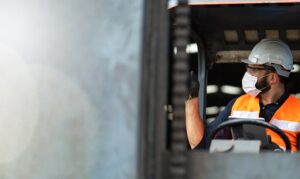Labor costs are a major part of your business’s operating expenses. They include the salaries of employees who work directly in producing goods, such as assembly line workers. Direct labor includes payroll taxes, benefits, and other worker-related costs.
Bakeries, candy stores, and custom tailors are considered manufacturing because they create products from raw materials or components. Logging and mining, however, are not considered manufacturing. Click https://www.taskforcelabor.com/ to learn more,

Manufacturing is a value-adding activity that transforms raw materials or components into finished goods. It involves a range of processes that use mechanical, thermal, electrical, or chemical energy to create specific changes in the configuration of the materials. The process ends with a finished product that fulfills functional requirements identified in the design stage. Manufacturing has been used for centuries, with the earliest examples including making tools, grinding and weaving, distilling and fermenting, and assembling wooden furniture and metal instruments.
The different types of manufacturing can be distinguished by the type of products produced and the production techniques employed. In addition, there are other factors that affect the success of a particular manufacturing strategy, such as workforce optimisation, logistics and supply chain management.
Make-to-stock (MTS) manufacturing produces products based on predicted demand forecasts. This method can be effective for lowering costs and speeding up delivery times, but it can also lead to sizable component inventory build-up if sales forecasts are incorrect. Make-to-order (MTO) manufacturing is the opposite of MTS and works directly with customers to understand their needs and product specifications. In this approach, manufacturers only begin production after receiving a signed contract or letter of intent from the customer.
Job shop manufacturing is another variation on the process that focuses on producing a specific good for one particular customer or project. This requires a greater degree of customization and set-up work than the other methods, but can result in a faster and more cost-effective delivery time.
When deciding on the best manufacturing processes for your company, consider factors such as the length of each production phase and the amount of waste that each method will produce. Varying phase lengths can create bottlenecks in your manufacturing pipeline, so it’s important to choose a process that can handle the required volume of products. Similarly, different production techniques will naturally produce different amounts of waste, so it’s essential to select a method that doesn’t require too much material or energy.
It’s also important to note that although the term “manufacturing” is sometimes used interchangeably with the term “production,” manufacturing is more specifically defined as creating new, tangible finished goods from raw materials or components. Production is a broader term that can include activities such as mining, logging, construction and theater production.
Manufacturing equipment refers to the tools and machines that help a company with its product production process. It includes any machine that turns raw materials into a finished good that can be sold to customers. This is different than office equipment, which typically consists of computers and printers. There are many types of manufacturing equipment. Some are created to perform creation tasks, while others are designed to assemble or package items. In either case, the goal is to create products that meet specific needs and requirements.
The most common type of creation-based manufacturing equipment is a milling machine. This machine takes raw materials like metal, wood, or plastic and shapes them into the final product or parts that will be used in assembly. Some milling machines work under human control, while others are programmed to execute preplanned computer programs.
Other types of creation-based manufacturing equipment include molding machines, dies and presses and lathes. Molding machines use heat and pressure to change the shape of raw materials. Dies and presses are similar in that they can alter the physical form of materials. Lathes are a bit different because they remove material very quickly from a starting object.
Assembling and packaging are also essential production tasks. Companies need to have the right equipment to ensure that their products can be made and delivered in a timely manner. This type of equipment can be as simple as a conveyor belt that moves the finished product down to other stations, where robot workers or human employees will put the finishing touches on it.
A company can also use a machine that can assemble large parts of the product together, such as a robotic assembly line. This kind of machinery can save time and money by allowing the company to produce more goods in a shorter amount of time.
When choosing the right manufacturing equipment for a business, it is important to consider its durability and space requirements. The machine should be able to withstand repeated usage and the elements that come with it, such as dust, rain and heat. It is also a good idea to consider the power that the machine will consume. Lastly, it is important to understand the manufacturer’s warranty.
Manufacturing skills are developed by workers who use their hands-on manual and operational abilities to build products. These skills are often transferable between different positions in the same factory or among multiple factories, making it easier for employers to find and keep skilled workers. They also help workers avoid the “skills gap” that can occur when a workforce lacks the technical and manual labor skills required by an organization’s changing production processes or technology.
Critical thinking and problem-solving are two of the most important skills in a manufacturing workforce. These abilities allow manufacturing workers to quickly troubleshoot any unforeseen problems that may arise during production and prevent them from happening in the future.
Another key skill that manufacturing employees should possess is attention to detail. This skill allows them to notice small issues that can cause major consequences, such as a loose bolt or an incorrect part. Having this skill can save time and money by preventing mistakes that could have been avoided with better focus on the task at hand.
Effective communication is a necessary skill for any workplace, but it’s especially important in manufacturing. Employees in this field need to be able to effectively communicate with supervisors, other employees, and clients, both orally and in writing. This helps to ensure that everyone is on the same page and can understand each other.
It’s also essential that manufacturing workers have strong computer literacy skills. Many of the tasks involved in manufacturing require employees to use computers for data entry, record keeping, and other tasks that are essential to the job. Having strong computer skills can make these tasks much more efficient and productive.
Other valuable manufacturing skills include the ability to read and interpret engineering prints, work with cutting equipment, and use various measurement tools, such as calipers. Additionally, employers value manufacturing employees who can program and troubleshoot programmable logic computer systems (PLC) to maintain production output and quality.
Since manufacturing is such a diverse industry, employees need to be able to adapt to changing technology and workflow processes. Therefore, it’s important for manufacturing workers to develop their skills through training or professional development opportunities continually. These training programs can also help them avoid the skills gap and build a career in this fast-growing industry.
Manufacturing jobs are in many different fields, and they can be very rewarding. They can also be demanding physically and mentally, and they can require specialized training and education. Some examples of jobs in manufacturing include CNC machining, welding, CAD/CAM software blueprint reading and design, and quality control.
The types of products made in manufacturing can vary greatly, from electronics to car components to life-saving medical devices. Some are cutting-edge and innovative, while others are more traditional and staples of the economy. Regardless of the product, however, all manufacturing jobs involve using a combination of technology and human labor to create something that will benefit society in some way.
Many people find a job in manufacturing because of its diversity and the opportunity to create something new. Manufacturing is important to the health of the economy, both as a source of innovation and as an engine of growth. Many people also find a job in manufacturing because it offers good pay and benefits.
Workers in manufacturing earn more per hour than other occupations, and their wages have been rising faster than other private-sector wages. This trend is driven by the fact that manufacturing jobs are very tradable, and companies migrate production activity to areas with cheaper labor costs, as discussed by Michael Spence in his book “Factory Jobs.”
A career in manufacturing can be very fulfilling and interesting for people who like to innovate, solve problems, work with their hands and think creatively. It is an excellent choice for people who want to make a difference in the world.
Manufacturing is an essential part of both small (towns) and large (states and countries) economies, and many businesses are reshoring or bringing back jobs that were once outsourced overseas. This is great for the local economy and the workers, who are now able to support their families.
Manufacturing is a growing industry, and people who want to get into the field should start by researching their local employment options and apprenticeships. They should also look at what skills are needed for specific positions and whether a bachelor’s degree or other higher-level educational qualifications are required. Then they can use resources like Handshake to move their job search forward, such as getting custom job alerts and accessing job posts from top companies.


